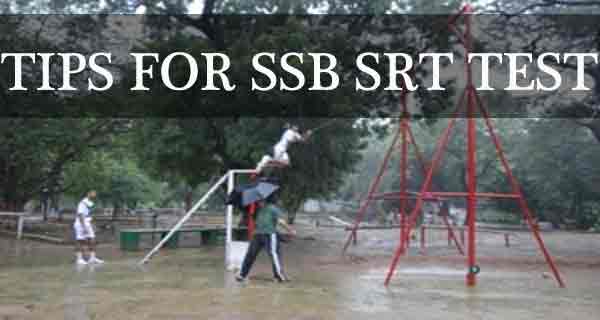Looking for best tips for SSB Situation Reaction Test? Situation Reaction Test SRT of SSB interview consists 60 situations for which reactions to be written. Check out tips to write best answers for SRT test questions of SSB interview.

As discussed earlier, SRT or Situation Reaction Test is the third test in the category of psychological testing in SSB interview. It is conducted on the same day TAT and WAT are conducted, that is, on the 2nd Day of SSB after Screening.
Many of the candidates find it difficult to perform well in SRT as they have very less time to respond to the situation. And that’s the whole gist of the test.
Best Tips For SSB Situation Reaction Test
Here, we bring you the top 11 golden tips for attempting SRT. These tips are a compilation of all-time top tips and tricks from all over the internet. So, here it goes:
- Keep your response brief, but complete. For example, for a situation like – “he met with an accident across the road. You…” the apt answer would be – “call ambulance, give him trauma first aid, help him move to hospital”. One brief sentence, separated by commas.
- Don’t be imaginary. This is the most important tip for SRT. Be realistic in your response and do not write responses that you have already mugged up or prepared. For example, for the same situation, do not write – “I’ll take him to the hospital on my own” as this is not highly difficult but you can risk his life by taking chances in the traffic.
- Do not write long sentences as you have only 30 seconds to answer one situation. Be to the point and be sharp.
- Give meaningful responses that make sense.
- Do not pull in character from out of nowhere in the situation. For example, for the same situation, do not write, “a doctor passing by will help the victim and help him move to the hospital”
- Do not make incomplete sentences as they show a lack of responsibility and at the same time, keep the sentences short and meaningful.
- Do not demonstrate panic in your response to the situation like, for the same example situation, do not write – “I will shout for help and cry out for assistance”
- Do not forget your ethical and moral responsibilities towards the society and toward the victim.
- Do not spend too much time in thinking out the answers to the situations. Write quickly the answer that comes to your mind first. Do not turn over the page until you are told to do so.
- Try to empathize with the situation in your responses while dealing with the ‘feelings of others’ and give response accordingly.
- Do not try to give out prepared answers as if you get through this by giving a prepared answer, you will certainly be caught while your TAT and WAT are cross checked with the SRTs.
Finally, be yourself, practice a lot and keep a time check on your situation. Initially, try to practise without a clock and time. Try to improve your responses and keep it as positive as you can.
Now, if you see progress in your positive thinking, try to think as quick as you can. Further, try putting the time limit of 30 seconds to it. You can download practise sets from the internet or try out the sample online SRT tests on this website, but please don’t look for answers and don’t try to copy the same.

Discussion Board
No comments received yet. Be first to comment.
Please Login to write your comment.